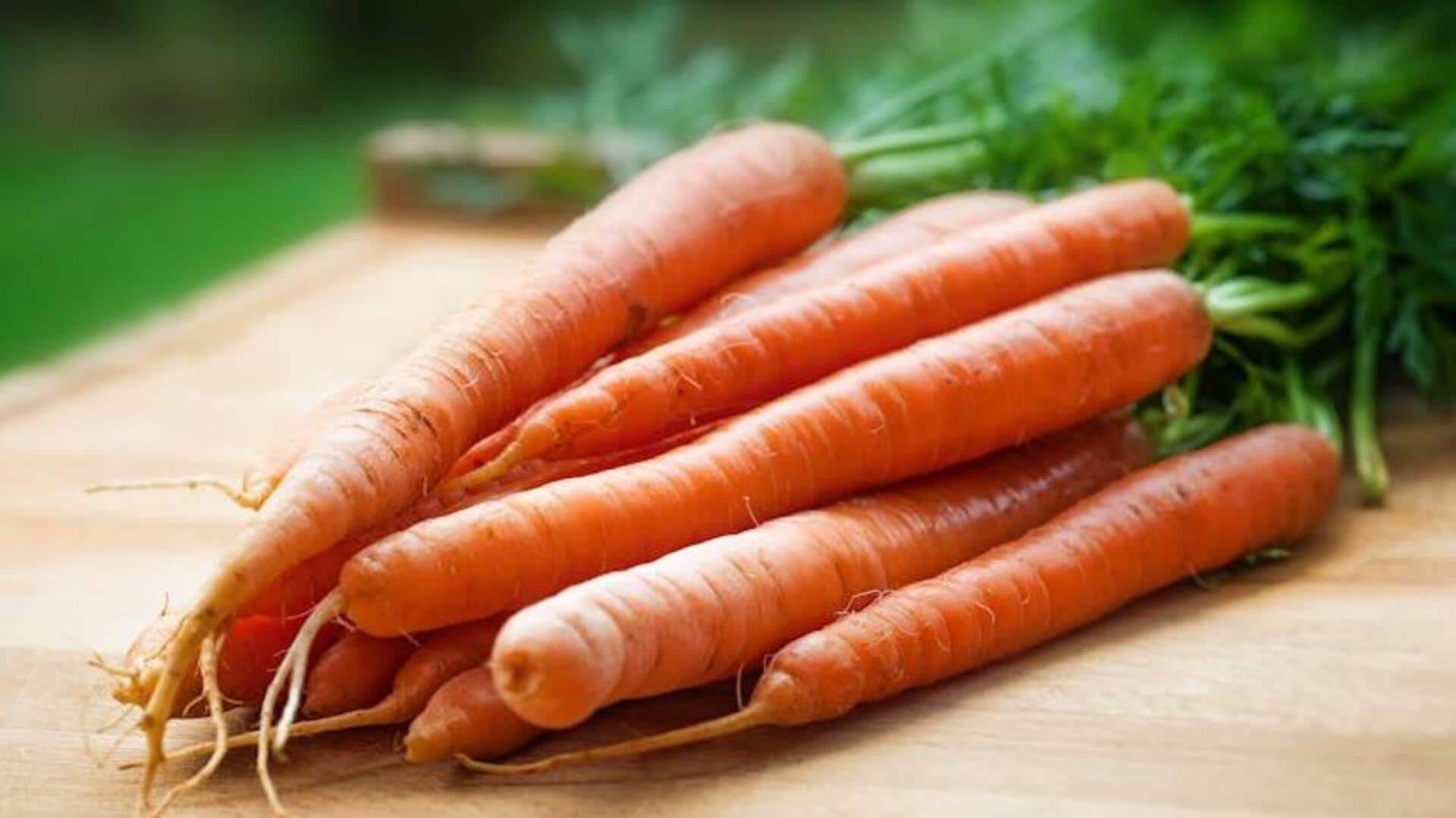
Crisp carrots: 5 root-deep cultivation secrets
What's the story
Carrots are a beloved root vegetable, prized for their flavor, nutrition, and versatility in the kitchen.
However, growing crunchy, sweet carrots at home involves a bit more than simply tossing some seeds into the dirt and hoping for the best.
This article provides five crucial tips for growing carrots that are not only tasty but also big and beautiful.
Variety Choice
Select the right variety
The type of carrot seeds you select will greatly influence the success of your harvest.
Various varieties are suited to different climates and soil conditions.
If you live in a cooler climate, opt for 'Nantes' or 'Danvers' as they are more cold-tolerant.
For those in warmer areas, 'Imperator' or 'Chantenay' varieties would be more suitable.
Understanding the specific needs and characteristics of each variety is key to a successful crop.
Soil prep
Prepare the soil thoroughly
Carrots need deep, loose soil to grow long and straight.
Before planting, make sure to till the soil to a depth of at least 12 inches and remove any stones or hard clumps that could hinder growth.
Adding organic matter like compost can help improve soil structure, supply essential nutrients, and promote moisture retention.
A well-prepared bed is the secret to avoiding stunted or misshapen carrots.
Spacing strategy
Master the art of spacing
Spacing is crucial in growing big carrots. Seeds sown too closely lead to overcrowding and stunted growth.
Strive for seeds approximately two inches apart, in rows 12 inches apart.
After seedlings emerge, thin them to ensure each has ample space to develop fully.
While thinning feels wasteful, it's essential for optimizing each plant's space and resources.
Water wisdom
Keep moisture consistent
Carrots require a steady supply of moisture throughout their growing season but are especially sensitive during germination and early development stages.
By watering gently with a fine spray nozzle attachment on your hose or watering can when necessary—typically once every two days during dry spells—until seedlings establish themselves firmly. Just ensure the soil is kept evenly moist but not waterlogged.
Pest patrol
Fend off pests naturally
Pesky carrot flies can spell disaster for your crop if left unchecked!
To keep your carrots safe without resorting to harsh chemicals, try using physical barriers like floating row covers right after planting until harvest time.
Alternatively, companion planting with strong-scented plants (think onions or leeks) nearby can help confuse pests and keep them at bay, all while fostering biodiversity in your garden.